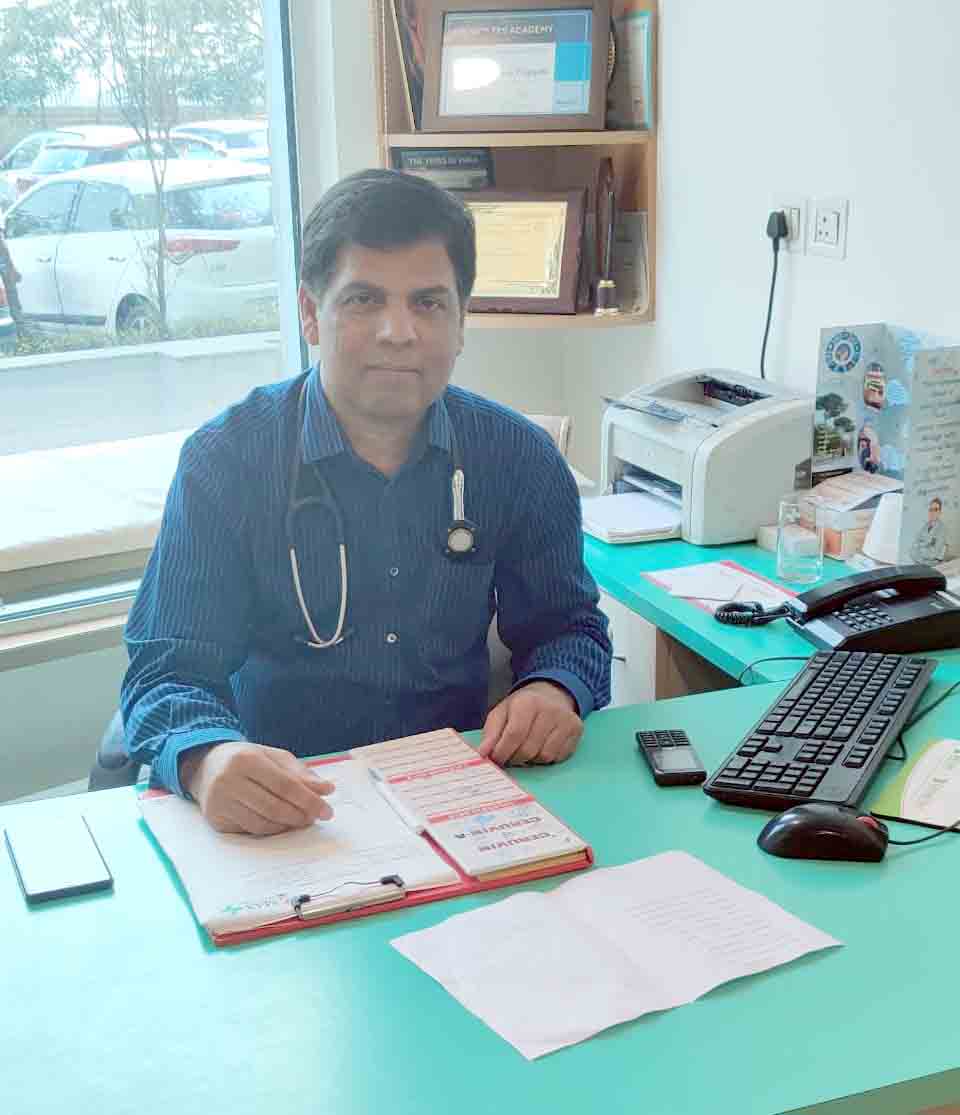Early diagnosis imperative to manage heart diseases and prevent complications

Sonipat News, 14 Nov 2019 : Heart diseases are emerging as the leading cause of mortality in India and becoming increasingly common among the younger population, as per recent estimates. About 80% to 90% of premature deaths due to heart disease can be prevented through regular screening, timely medical intervention, and proper lifestyle management . There is a need to create awareness on identifying the subtle symptoms of heart disease and getting diagnosed in a timely manner.
Some common heart ailments include coronary artery disease, heart attack, arrhythmias, heart failure, heart valve disease, congenital heart disease and cardiomyopathy. There is a need to stress on the importance of regular checkups.
Speaking about this, Dr Nityanand Tripathi, Interventional Cardiologist, Max Hospital, Shalimar Bagh, said, “Of all the non-communicable diseases (NCDs), heart diseases are a leading cause of deaths in India. Bleeding is a significant complication during anticoagulation therapy in patients with pulmonary embolism. Bleeding is a common complication of heart events such as heart attack and stroke. Patients with a history of both heart attack and bleeding are at higher risk for this complication, especially in the months following the event. This cardiac crisis is due to factors many of which are largely preventable, including bad food habits, high blood pressure, high cholesterol, lack of physical activity, and habits like smoking and drinking. What exacerbates this situation is that people are often not aware of the symptoms and this delays diagnosis.”
Some symptoms one must watch out for include pain or pressure in the chest, which may indicate angina; pain or discomfort in the arms, left shoulder, elbows, jaw, or back; shortness of breath; nausea and fatigue; lightheadedness or dizziness; and cold sweats.
Adding further, Dr Tripathi, said, “On-the-go lifestyles have induced a lot of stress today especially among youngsters. This, when combined with other factors, can wreak havoc on the heart. While the treatment options for heart diseases include medications, etc., the importance of a healthy lifestyle cannot be ignored. In people who develop complications, surgery and other treatment may be needed.”
In people who develop a heart disease and complications such as an acute heart attack, it is imperative to provide immediate treatment in the form of angioplasty to minimize or avoid the damage to the heart muscles. Angioplasty is used to restore and improve blood flow. A long, thin tube (catheter) is inserted up to beginning of Main Coronary artery. A wire with a deflated balloon is then passed through the catheter to the narrowed area. The balloon is inflated, compressing the deposits against the artery walls. A stent is often placed in the artery to avoid collapse and to reduce recurrence of blockage. Drug- eluting stents release medication to help keep the arteries open. In CABG, the surgeon creates a graft to bypass blocked coronary arteries using a vessel from another part of the body. This allows blood to flow around the blocked or narrowed coronary artery.
Some tips to prevent heart diseases:
• Achieve and maintain a healthy weight for your height.
• Exercise regularly.
• Eat a diet that is rich in fruits, vegetables, and whole grains.
• Limit sodium intake to under 5gm per day and get plenty of
potassium (at least 4,700 mg per day) from fruits and vegetables.
• Reduce stress through yoga and meditation.
• Watch for your Blood Sugar and keep a check.
• Monitor your blood pressure regularly, and work with your doctor to keep it in a healthy range.
– Ends –
Disclaimer: “Any and all the Information provided in the article are independent views expressed by Dr Nityanand Tripathi, Interventional Cardiologist, Max Hospital, Shalimar Bagh for general overview and educational purposes only.”






